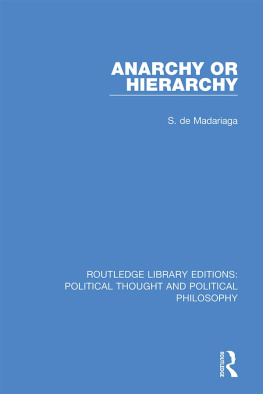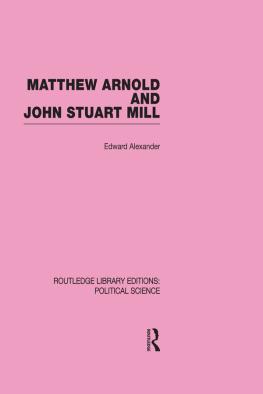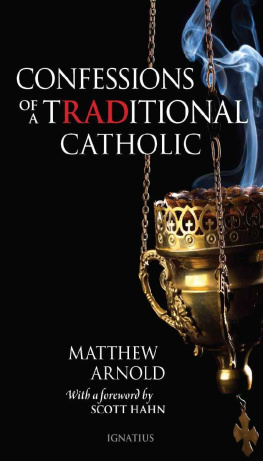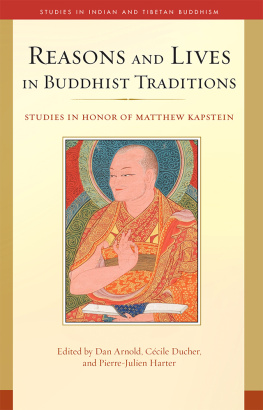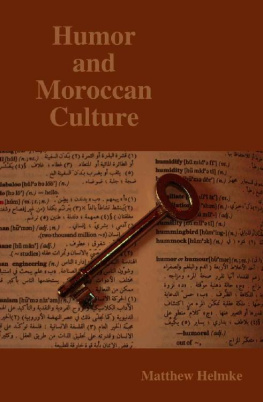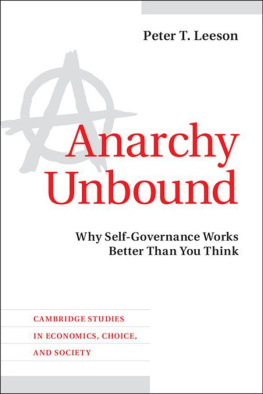Arnold Matthew - Culture and Anarchy
Here you can read online Arnold Matthew - Culture and Anarchy full text of the book (entire story) in english for free. Download pdf and epub, get meaning, cover and reviews about this ebook. City: UK, year: 2006, publisher: Oxford University Press, genre: Art. Description of the work, (preface) as well as reviews are available. Best literature library LitArk.com created for fans of good reading and offers a wide selection of genres:
Romance novel
Science fiction
Adventure
Detective
Science
History
Home and family
Prose
Art
Politics
Computer
Non-fiction
Religion
Business
Children
Humor
Choose a favorite category and find really read worthwhile books. Enjoy immersion in the world of imagination, feel the emotions of the characters or learn something new for yourself, make an fascinating discovery.

- Book:Culture and Anarchy
- Author:
- Publisher:Oxford University Press
- Genre:
- Year:2006
- City:UK
- Rating:4 / 5
- Favourites:Add to favourites
- Your mark:
- 80
- 1
- 2
- 3
- 4
- 5
Culture and Anarchy: summary, description and annotation
We offer to read an annotation, description, summary or preface (depends on what the author of the book "Culture and Anarchy" wrote himself). If you haven't found the necessary information about the book — write in the comments, we will try to find it.
Culture and Anarchy — read online for free the complete book (whole text) full work
Below is the text of the book, divided by pages. System saving the place of the last page read, allows you to conveniently read the book "Culture and Anarchy" online for free, without having to search again every time where you left off. Put a bookmark, and you can go to the page where you finished reading at any time.
Font size:
Interval:
Bookmark:
MATTHEW ARNOLD was born at Laleham-on-Thames on Christmas Eve 1822, the eldest son and second of the nine surviving children of the Revd Thomas Arnold and Mary Penrose Arnold. He was educated at Winchester; at Rugby School, where his father was headmaster; and at Oxford. In 1845 he was elected to a fellowship at Oriel College, Oxford, and in 18467 spent an extended period of time in France. He started to publish his poetry in the late 1840s and early 1850s. In 1847 he became personal secretary to Lord Lansdowne, a leading Whig politician, through whose influence he was appointed inspector of schools in 1851, which gave him a secure enough position to marry Frances Lucy Wightman. It was a close marriage, and they had six children (three of whom died young), to whom Arnold was devoted. Most of Arnolds poetry was written in the first half of his life, on themes of love, faith and doubt, stoicism and aesthetic pleasure. From the mid-i86os his role as a critic came into prominence. Whilst continuing his job as a school inspector, he published reports on education on the Continent, and began to write regularly for the periodical press. He wrote about the place of literatureand of criticismin modern society, especially drawing on classical and European writers to highlight qualities which he felt were lacking in contemporary English culture. As Professor of Poetry at Oxford (185767) he also delivered four lectures on the study of Celtic literature. His practical and theoretical work on education led him to a wider social criticism, which bore fruit in Culture and Anarchy. His lifelong reflection on his own religious experience, on the religious life of the nation, and on the ideas of his father, was to develop from this point into writing on explicitly religious themes. In the later 1870s and 1880s he returned to writing about poetry, and also went on two lecture tours to the United States. In April 1888 he died suddenly of a heart attack in Liverpool.
JANE GARNETT is Fellow and Tutor in Modern History at Wadham College, Oxford. She is a founder member of the editorial board of the Journal of Victorian Culture, and from 1994 to 2004 acted as Consultant Editor for Women on the Oxford Dictionary of National Biography.
OXFORD WORLDS CLASSICS
For over 100 years Oxford Worlds Classics have brought readers closer to the worlds great literature. Now with over 700 titlesfrom the 4,000-year-old myths of Mesopotamia to the twentieth centurys greatest novelsthe series makes available lesser-known as well as celebrated writing.
The pocket-sized hardbacks of the early years contained introductions by Virginia Woolf, T. S. Eliot, Graham Greene, and other literary figures which enriched the experience of reading. Today the series is recognized for its fine scholarship and reliability in texts that span world literature, drama and poetry, religion, philosophy, and politics. Each edition includes perceptive commentary and essential background information to meet the changing needs of readers.
Refer to the to navigate through the material in this Oxford Worlds Classics ebook. Use the asterisks (*) throughout the text to access the hyperlinked Explanatory Notes.
OXFORD WORLDS CLASSICS

MATTHEW ARNOLD

Edited with an Introduction and Notes by
JANE GARNETT


Great Clarendon Street, Oxford OX2 6DP
Oxford University Press is a department of the University of Oxford.
It furthers the Universitys objective of excellence in research, scholarship,
and education by publishing worldwide in
Oxford New York
Auckland Cape Town Dar es Salaam Hong Kong Karachi
Kuala Lumpur Madrid Melbourne Mexico City Nairobi
New Delhi Shanghai Taipei Toronto
With offices in
Argentina Austria Brazil Chile Czech Republic France Greece
Guatemala Hungary Italy Japan Poland Portugal Singapore
South Korea Switzerland Thailand Turkey Ukraine Vietnam
Oxford is a registered trade mark of Oxford University Press
in the UK and in certain other countries
Published in the United States
by Oxford University Press Inc., New York
Editorial material Jane Garnett 2006
The moral rights of the author have been asserted
Database right Oxford University Press (maker)
First published as an Oxford Worlds Classics paperback 2006
All rights reserved. No part of this publication may be reproduced, stored in a retrieval system, or transmitted, in any form or by any means, without the prior permission in writing of Oxford University Press, or as expressly permitted by law, or under terms agreed with the appropriate reprographics rights organization. Enquiries concerning reproduction outside the scope of the above should be sent to the Rights Department, Oxford University Press, at the address above
You must not circulate this book in any other binding or cover
and you must impose this same condition on any acquirer
British Library Cataloguing in Publication Data
Data available
Library of Congress Cataloging in Publication Data
Data available
Typeset in Ehrhardt
by RefineCatch Limited, Bungay, Suffolk
Printed in Great Britain by
Clays Ltd, St Ives plc
ISBN 0192805118 9780192805119
Letters | The Letters of Matthew Arnold, 6 vols., ed. Cecil Y. Lang (Charlottesville, Va., and London, 19962001). |
Note-Books | The Note-Books of Matthew Arnold, ed. H. F. Lowry, K. Young, and W. H. Dunn (Oxford University Press, 1952). |
Super | Complete Prose Works of Matthew Arnold, 11 vols., ed. R. H. Super (Ann Arbor, 196077). |
Where there is no vision, the people perish
Proverbs 29: 18
Always place a definite purpose before you
Thomas Kempis, The Imitation of Christ
THESE quotations were copied by Arnold into his notebook for 1867, alongside many of the references used in the essays which became Culture and Anarchy.
Eliot was right that the status of Culture and Anarchy as a classic, whilst obviously being due to the continued relevance of the themes which he addressed, was also due to the fact that Arnold was indeed more playful and less puritanical than many of the Victorian critics who tackled the same issues. The unsystematic nature of his thoughtthe accumulation of vivid dialectical images rather than rigorous argumentmade it stimulating and suggestive over a wide range. Meanwhileironicallyhis tendency to associate materialistic narrowness with Nonconformity both echoed and served to reinforce metropolitan and university prejudices to this day. Arnolds essential optimism about the potential for educational progress and his positive view of the role of the State came to resonate in Britain with Welfare State idealism. The first substantive new twentieth-century edition of the text was published in 1932, edited by J. Dover Wilson, Professor of Education at Kings College Londonan edition which had been reprinted twelve times by 1963, when it was described on the back cover as a
Font size:
Interval:
Bookmark:
Similar books «Culture and Anarchy»
Look at similar books to Culture and Anarchy. We have selected literature similar in name and meaning in the hope of providing readers with more options to find new, interesting, not yet read works.
Discussion, reviews of the book Culture and Anarchy and just readers' own opinions. Leave your comments, write what you think about the work, its meaning or the main characters. Specify what exactly you liked and what you didn't like, and why you think so.

